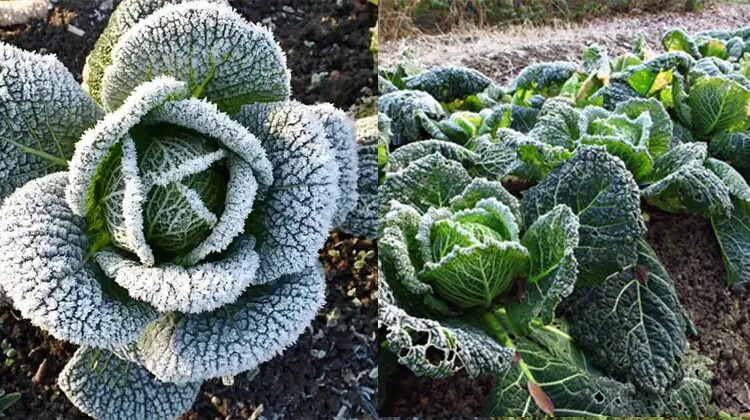
When the fall season arrives and the chilly embrace of frost becomes a regular visitor, many home gardeners face a familiar dilemma: can the vegetables from your garden still be safely enjoyed after a frost? In this straightforward article, we’ll address this question head-on, providing you with practical guidance on how to make the most of your garden’s post-frost harvest.
Unpredictable Frost Dates
Gardeners have increasingly found themselves grappling with the unpredictability of frost dates. Traditionally estimated based on historical weather data, regional frost dates have become less reliable as climate patterns shift. It’s not unusual for the first and last frosts to deviate from projected dates, often catching gardeners off guard.
Evaluating the Damage
Waking up to a garden blanketed in frost may be disheartening, but there’s no need to panic. Even with a light frost, some plants may be harmed, but you can still salvage your vegetables if you act promptly. The key is to assess the damage. Wait until the afternoon to make your evaluation, as the plants will have had time to thaw and recover, making it easier to gauge the extent of the frost’s impact.
Understanding Frost Damage
Frost impacts plants by freezing the water within their cells, forming ice crystals that can pierce cell walls. As these ice crystals melt, the plant cells collapse, leading to mushy vegetables that quickly rot. In some cases, the main plant may die, while the fruit remains intact. However, without a water and nutrient supply from the plant, these vegetables will also rot if not picked promptly.
Which Plants Are Most Vulnerable?
The susceptibility to frost damage varies with the water content of the vegetables. High water content vegetables, such as tomatoes, peppers, and eggplants, are prone to damage from light frost. Some cucurbits, including summer squash, cucumbers, and melons, are also easily affected. However, if the plant takes the brunt of the damage, you may still be able to salvage some of the vegetables.
Lettuces and leafy greens typically withstand light frost but can be wiped out by a hard frost. Inspect these plants in the afternoon, as they may appear wilted in the morning but recover later in the day.
Savoring Sweet, Frost-Kissed Brassicas
It’s crucial to remember that not all frost is detrimental. Certain vegetables, like brassicas, actually benefit from a frost or two. Frosts help to concentrate sugars in these plants, making them sweeter. Brussels sprouts, kale, and many other fall vegetables can improve in flavor after a frost.
Harvest and Use Immediately
For vegetables with minor frost damage, it’s advisable to harvest and use them promptly. Vegetables like tomatoes lose their flavor rapidly in the cold and should not be stored in the fridge. If necessary, you can use them in recipes like soups or sauces.
Planning for Future Frosts
While frost dates might be less predictable, it’s still wise to have a plan in place for protecting your garden. Keep an eye on extended weather forecasts as fall progresses and track when overnight temperatures are expected to drop toward freezing. Some weather apps can even notify you of impending frost in your area. Having a plan ready well in advance of the first expected frost will help you protect your garden effectively.
In Conclusion
When dealing with frost-damaged vegetables, it’s essential to remain calm and assess the situation thoughtfully. While a frost can be destructive, it doesn’t have to spell the end of your harvest. By understanding the effects of frost and promptly salvaging undamaged vegetables, you can continue to enjoy the rewards of your garden well into the autumn season. So, whether you’re planning to protect your garden from the impending frost or gracefully bid farewell to the growing season, remember that gardening is a labor of love, and both you and your garden deserve a well-earned rest.
Do you like this? Share inspiration with your friends!

Leave a Reply